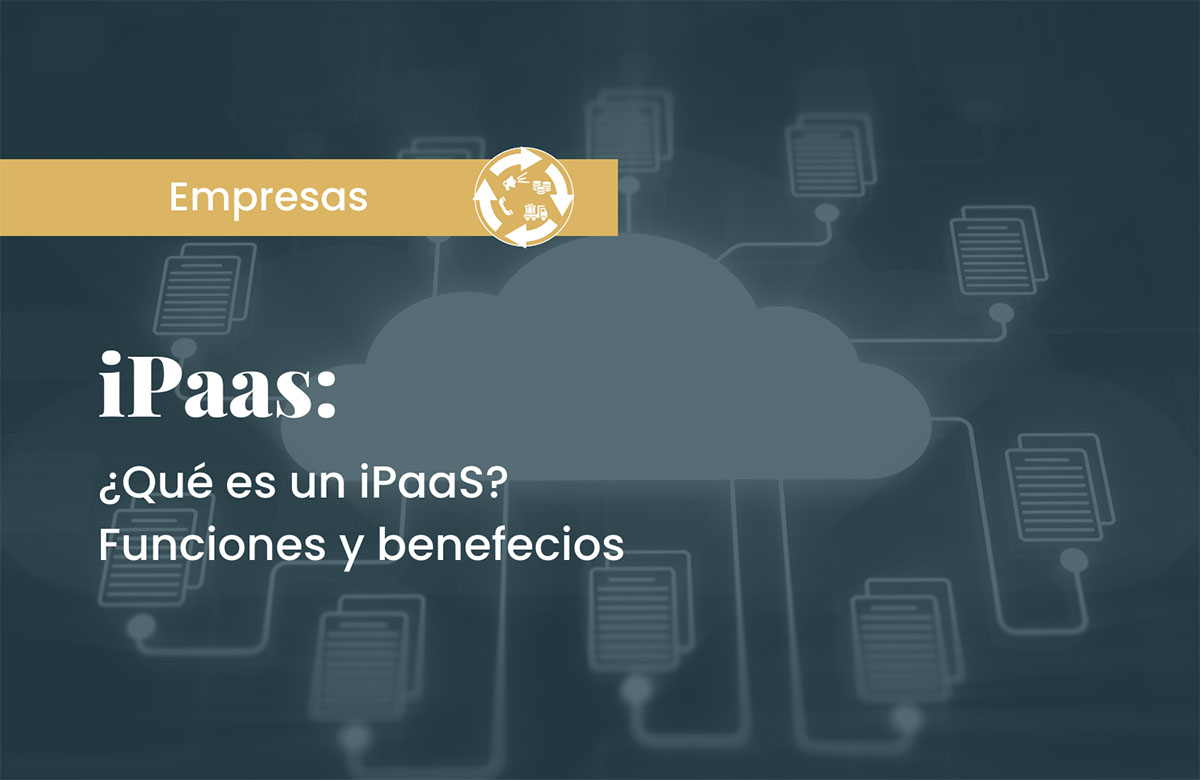Nowadays, many companies have turned to the use of iPaaS to integrate their services and automate new processes. If you are thinking about doing the same, this article is for you. Below, we explain everything you need to know about this platform.
What Does iPaaS Mean?
An iPaaS (Integration Platform as a Service) is a platform that allows developers to connect applications. An iPaaS integration solution provides a cloud service that connects applications without the need for local software or hardware infrastructure.
Most major software providers offer an iPaaS solution, which typically includes API management functions and tools for application and data integration.
What Are the Functions of an iPaaS?
The purpose of an iPaaS is to provide a single platform that handles all aspects of integration, from connecting multiple data sources, transforming them, and routing messages to the appropriate destination.
This solution exists to solve issues with applications that operate separately and in a fragmented manner.
- Applications: You can use them in different areas of your company. However, keep in mind that they do not automatically communicate stored information.
- Application Mode: Some applications remain on-premises while others are cloud-based. Basically, iPaaS helps solve problems related to:
- Software management and updates.
- Application fragmentation.
What Factors Should Be Considered When Using an iPaaS Solution?
While iPaaS offers many benefits, it is important to consider key factors to avoid future problems. Some of the most important are:
Number and Types of Applications to Integrate
One key benefit of iPaaS is the ability to connect a variety of applications, including SaaS applications, on-premises apps, and legacy systems. Not all solutions support every type of application, so it’s important to choose a platform that supports the specific apps you need to integrate.
Integration Complexity
Simple integrations may require just a few clicks to set up, while more complex integrations may require custom coding. Most iPaaS solutions offer a range of options to configure integrations, from simple point-and-click tools to more robust development environments.
Data Volumes and Types
Some iPaaS solutions are better suited for handling large volumes of data, while others provide features for real-time data streams. If you are integrating applications that handle large amounts of data, look for a solution that can scale to meet your needs.
Regulatory Compliance
If you are integrating applications subject to regulatory compliance, such as healthcare or financial applications, choose an iPaaS solution that offers features to help meet those requirements.
Cost
iPaaS solutions typically charge based on the number of integrations and/or the amount of data processed. Some providers also offer free tiers for small-scale use cases. Be sure to consider cost when comparing different providers.

Who Are the Best iPaaS Platform Providers?
Undoubtedly, iPaaS is a crucial tool to optimize connections between all information and applications in your company. Now, you need to know the best providers of this service to choose the one that best fits your needs. Here are some of the most important providers:
- Dell Boomi: Provides a highly efficient iPaaS service. It excels in integrating applications and enterprise information, and also offers task automation, API design, application deployment, and more.
- Informatica: This provider often surpasses others due to its excellent reputation and experience. A prestigious company highly recommended for iPaaS solutions.
- Celigo: Offers an iPaaS capable of managing nearly any enterprise system. Its tested apps are known for providing users with the problem-solving capabilities they need.
- Jitterbit: Specializes in helping companies that lack resources to create integrations themselves. Its integrations are simple and, above all, fast.
- MuleSoft: Offers a unique cloud integration service and provides comprehensive metrics and insights.
Benefits of Using an iPaaS
Some of the main benefits of using an iPaaS platform for your business are:
Improved Agility and Speed
Provides a self-service platform that allows developers to connect applications quickly without IT department intervention. This can lead to faster development times and more agile applications.
Greater Efficiency
iPaaS solutions automate many tasks related to integration, such as data transformation and error management. This frees developers to focus on other tasks, leading to increased efficiency.
Enhanced Flexibility
iPaaS solutions offer various ways to connect applications, including pre-built connectors, APIs, and custom code. This gives developers the flexibility to choose the best approach for each integration.
Lower Costs
iPaaS solutions can reduce integration costs by eliminating the need for expensive on-premises software and hardware. They typically charge based on usage, so you only pay for what you need.
Conclusion
iPaaS can bring significant benefits to organizations by improving agility, increasing efficiency, and reducing costs. When selecting an iPaaS solution, consider the number and type of applications to integrate, integration complexity, data volumes and types, and cost.
Need to integrate your ERP? You can rely on the help and advice of our web development agency.



